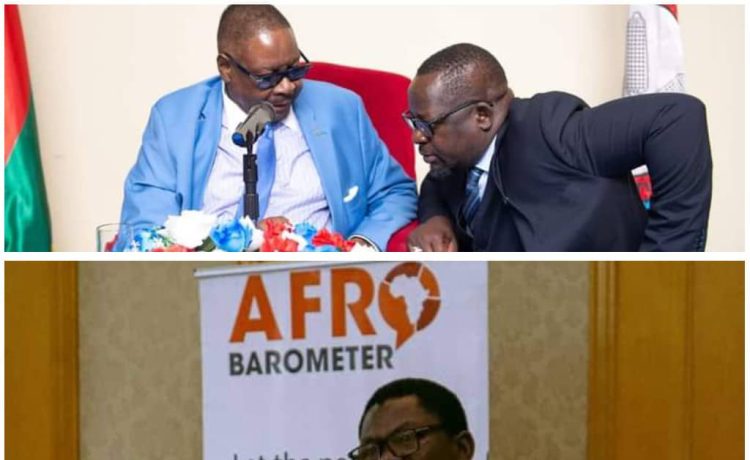Pan African research network, Afrobarometer, is back in the news with another report that discusses its findings on people’s perceptions of a number of social issues including corruption.
Despite efforts to give a clear and honest picture of what is happening on the ground to fight the vice, Afrobarometer assisted by the country’s media has deliberately swept some crucial truths into blind spots.
Afrobarometer is trying to paint a picture that there is more corruption under the Tonse regime than during previous governments. This is a wrong assertion.
It could be that the questions used to gather information were poorly framed hence creating discrepancies in the narrative of corruption in the country.
From word go, President Chakwera has been at the top of things firing some of his closest aides and cabinet ministers every time the courts of law open corruption-related cases against them.
In mind are senior ministers such as former Minister of Lands Kezzie Msukwa and former Minister of Energy Newton Kambala who were let go after they were entangled in corruption-related deeds and were arrested for the same.
Social and political scientists are of the view that these perceptions, as presented by Afrobarometer, are simply a product of an open society in which citizens discuss issues freely and report corruption to relevant authorities effortlessly.
The fact that Malawians are now talking about corruption is proof enough that democracy is being entrenched at a faster rate than before due to the political environment set by the Chakwera administration.
To put the icing on the cake, the Anti-Corruption Bureau was 2022 awarded as an anti-corruption champion at a global gathering known as Summit for Democracy. Such accolades can only be presented to nations where the fight against corruption is being won not lost.
Malawi has also made notable strides in the global corruption perceptions index (CPI) ranks.
The 2021 Corruption Perceptions Report by Transparency International TI) shows there has been a significant improvement in Malawi’s score. The country has scored 35 out of 100 points and is ranked 110 out of 180 countries and territories assessed.
The report also indicated that the improvement in the rank is because of changing perceptions of the government’s resolve to fight corruption. This clearly shows that Malawi has done well in this field.
It is therefore surprising that such commendable feats are contrary to what Afrobarometer says it found when it went into communities for its own survey that produced a different outcome altogether.
It is here that one notices serious discrepancies between the two reports. The questions by Afrobarometer were definitely not framed to solicit the right information. No wonder it came up with contradicting results with what other experts have found out.
On the CPI rank, Malawi has bettered countries like Algeria, Egypt, Zambia, Eswatini, Kenya, Uganda, Mozambique, Nigeria, and Zimbabwe.
This is the first time in six years that Malawi has performed well on the index. Between 2015 and 2020 when Democratic Progressive Party was in power the country scored an average of 30 percent.
For the first time, government is providing the bureau with enough resources for its operations. The immediate past ACB director Martha Chizuma is on record to have said that the Tonse regime is supporting ACB better than previous governments.
For corruption to end, we must focus on telling the truth about our condition followed by the right interventions. Afrobarometer has not helped Malawi with this set of information which defeats the truth and paints a picture that is not legitimate.
It is therefore not surprising that during the presentation of the survey results in Lilongwe, renowned political scientist Dr. Henry Chingaipe advised Afrobarometer and Centre for Social Research to consider providing more information on the criteria used to gather data.













